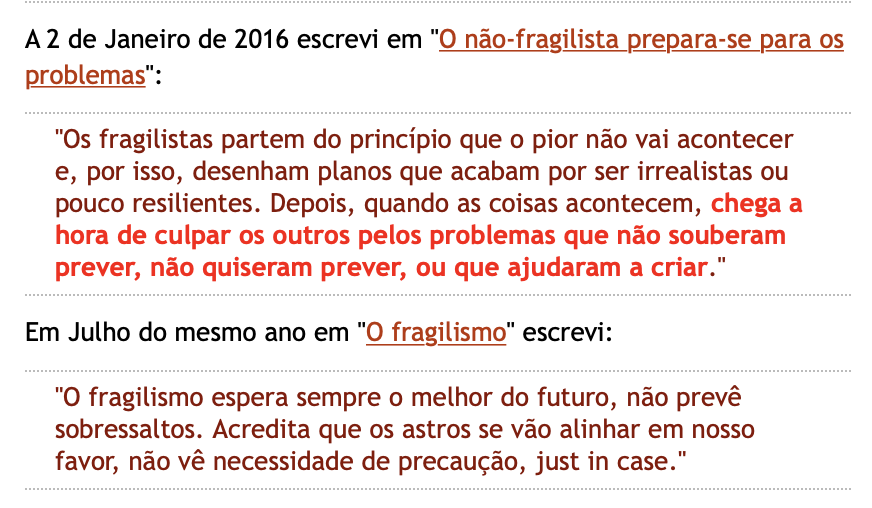Lembro-me de há muitos anos ter lido algures que a Wal-Mart e a China deveriam receber um prémio qualquer do governo americano pelo quanto ajudavam a controlar a inflação.
Em Maio de 2020 citava aqui:
"The deflationary environment created by rising Chinese exports and globalisation is over."
Algo que em Dezembro de 2021 traduzi aqui:
"Com a crise de 2008 começou a desglobalização, o aumento da importância do factor proximidade produção-consumo. Agora, com os confinamentos, com as quarentenas, com as cadeias de fornecimento pouco ágeis num mundo de incerteza...
...
Os impactes da desglobalização serão:
- mais emprego; (falta de mão de obra) e
- preços mais altos (inflação)"
Ontem em "Who will pay for the shift from efficiency to resilience?" encontrei:
"Are we entering a new era of wealth redistribution? Or will the imbalances between capital and labour that have characterised the past half century of economic history linger on?
...
In many OECD countries, there has been a decoupling of productivity and wages over the past 40 years, during which time business has claimed a larger share of national income gains.
...
Deglobalization, which will favor local labor markets in some industries, is beginning to shift that dynamic. So will the aging population, which will create a structurally tighter labor market as well as millions of new onshore healthcare jobs. [Moi ici: Escrevi aqui sobre como a demografia criará uma ou mais gerações de "Figos" - "Escrevi aqui algures que um dia seríamos (os nossos descendentes) todos tratados como Figos."]
But the third part of the capital and labor story is the increasing pressure on companies to empower consumers and the state at a time of rising costs. Inflation happens for all sorts of reasons, but one of a them is a shift in economic focus from efficiency to resilience. [Moi ici: O que escrevo aqui desde 2008 sobre nearshoring and reshoring e ultimamente sobre o risco político] Both the public and private sectors want to buffer themselves against climate change, geopolitics and market shifts. Changes in supply chains, reserve currency allocations and tax policies are all part of this. But resilience costs money. The question is: who is going to pay?"
Portanto, cuidado com o apagador usado pelos mata-borrões que não passam de fragilistas encartados.







%2006.21.jpeg)












